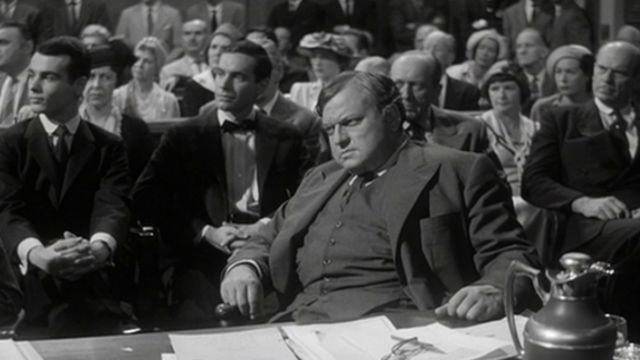Movie Review: Compulsion (1959)
“THEIRS WAS THE PERFECT CRIME they thought! They were too sure…too smart…too careful to leave a clue — but they did! and it exploded — The shocking story of two teenagers out for kicks…looking for thrills…and finding them!”


Compulsion (1959)
Director: Richard Fleischer
Cast: Orson Welles, Dean Stockwell, Diane Varsi
Synopsis: Two students, based on the infamous real-life killers Leopold & Loeb, commit a murder as part of their quest to ‘enjoy all possible human experience.’
Dean Stockwell (Married to the Mob, Air Force One) and Bradford Dillman (In Love and War, Bug) play a couple of killers based on the real-life characters of Leopold and Loeb (although their names are changed here), a duo who also inspired Hitchcock’s experimental thriller Rope a decade earlier. Dillman is Artie Strauss, an extroverted egotist who revels in the company and attention of others; Stockwell is Judd, a shy, buttoned-down studious type whose ego is nevertheless on a par with Strauss’s. Together, they hatch a plot to kill a stranger purely as an intellectual exercise in their quest to ‘enjoy all possible human experience.’ The couple are clearly gay. Although the film shies away from overtly stating the fact, you’d have to be blind not to pick up on the clues. Their victim is a child, seemingly picked at random. The film declines to show the child’s abduction and murder.
They almost get away with it, but fall foul of that most dangerous of all possible pitfalls: the belief that they are smarter – or more superior in this case – than their pursuers. E. G. Marshall (Broken Lance, 12 Angry Men) is the prosecuting attorney on their case, and for much of the time they have him fooled. I don’t know how closely the film sticks to the facts of the Leopold/Loeb case, but the oversight which traps them is a pretty elementary one.
The film is compelling while Strauss and Judd have their liberty, but once the net begins to close in things go unexpectedly flat, and the court case itself is something of an anti-climax. Orson Welles (The Kremlin Letter, Treasure Island) plays the boys’ defending attorney. He turns in an incredibly low-key, understated performance, muttering his lines like a shy novice. It’s easy to see what attracted him to the role (other than a pressing tax bill): he gets a good chunk of our undivided attention as he delivers a lengthy monologue in which he argues for Leopold and Loeb to receive the mercy they never showed their victim.
(Reviewed 17th November 2011)
httpv://www.youtube.com/watch?v=CrjbL4eedkQ

0 Comments